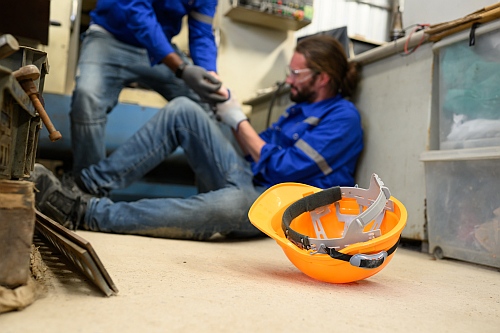During your discussion with a Louisiana workers compensation lawyer, the legal professional may find out that your accident was caused by workplace safety violations – better known as OSHA violations. If this is the case, you may be able to file both a workers comp claim and an OSHA violation claim.
Let us understand how workplace safety violations may have an impact on the outcome of your workers comp claim.
What Is OSHA and What Is Its Role?
The Occupational Safety and Health Administration (OSHA) is a federal agency in charge of overseeing workplace safety and establishing rules and standards to protect workers from workplace accidents and occupational diseases.
Established through the OSHA Act of 1970, some of the safety requirements for employers are:
- To prevent the workers’ exposure to harmful chemicals and substances
- To provide adequate training to employers using various machineries
- To provide respiratory protection in workplaces with airborne contaminants
- To implement measures that prevent falls from a height
- To prevent the spread of infectious diseases
Examples of OSHA Violations and How to Report Them
Not every employer oversight qualifies as a workplace safety violation according to OSHA. Some of the most common examples include:
- Failure to provide workers with personal protective equipment
- Failure to maintain and repair machinery and equipment
- Improper training for new hires
- Incorrect labeling of chemicals and other hazardous materials
When it comes to reporting, any worker can anonymously fill in a Whistleblower Complaint Form. Employers are also obliged to report any incident that resulted in:
- Worker’s death – within 8 hours after the event
- Worker’s hospitalization, amputation or eye loss – within 24 hours from the event
How Does an OSHA Violation Affect Your Workers Comp Claim
After you consult with a Louisiana workers comp lawyer and realize that your injury was caused by a workplace safety violation, you should first file an OSHA complaint and then a workers comp claim.
Here are the potential outcomes in this specific situation.

1. Your Employer Accepts the OSHA Citation
The local OSHA branch will investigate your claim and issue a citation to your employer. They have the right to accept or appeal it. If the employer accepts the citation, they automatically admit that they did not follow safety regulations.
Although the workers compensation is a no-fault system, the fact that OSHA violations existed at your workplace may actually increase your workers comp settlement.
2. The Employer Makes a Good-Faith Effort to Resolve the Safety Issues
If your employer starts making changes to the safety protocols at your workplace, the OSHA may withdraw the citation and not apply penalties. In this case, you may not receive any extra money as part of your workers comp settlement.
However, you should still hire an attorney to represent you and negotiate with the workers comp insurance company.
3. The Employer May Receive a Hefty OSHA Fine
In case of severe workplace violations, the OSHA may issue extremely high fines and apply other penalties. The most severe penalty is placing the employer in the Severe Violator Enforcement Program. This involves:
- Repeated follow-up inspections for a period of at least 3 years
- Increased penalties for any further safety violations
- Loss of business due to poor reputation
- Difficulty obtaining lines of credit and business loans
- Mandatory hiring of qualified persons for key jobs.
Discuss OSHA Violations with an Experienced Louisiana Workers Comp Lawyer!
If you have evidence that workplace safety violations contributed to your work injury, an experienced Louisiana workers comp lawyer may use this fact to win more money on your behalf.
The insurance company will have to accept a larger settlement because their client – your employer – breached federal regulations meant to protect workers from harm.
To maximize your chances of a positive outcome in your case, call us as soon as possible after your workplace accident to schedule a free case review with us at 504-420-2755!

